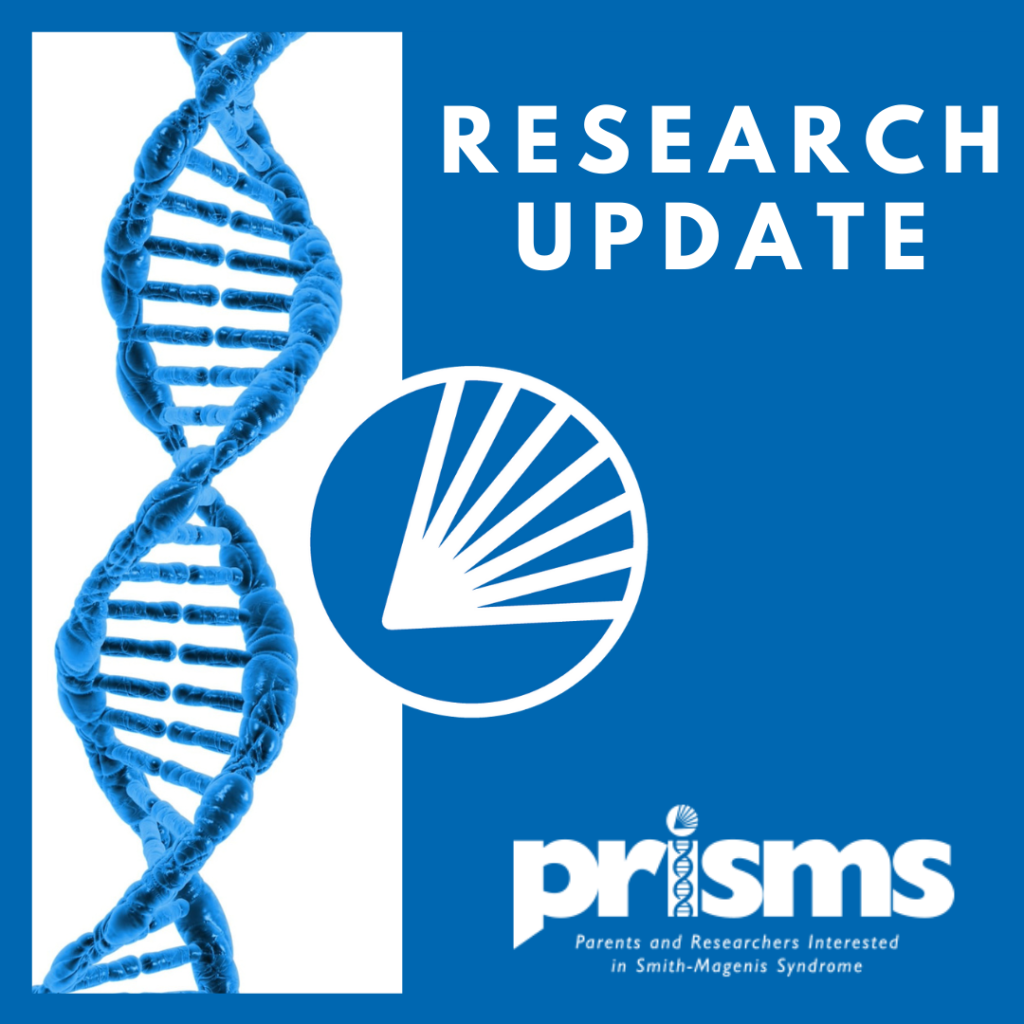PRISMS funded innovative SMS research at the University of Michigan
In Fall 2017, PRISMS was honored to announce the award of $150,000 to Dr. Shigeki Iwase and Dr. Michael Sutton at the University of Michigan to support their research into the “Roles of RAI1 in Translating the Histone Methylation Code into Synaptic Plasticity.”
Funding of this initiative is made possible by the generous contributions from our SMS community. You can help PRISMS continue to fund important SMS research by hosting a fundraiser or making a donation today.

The funding of this research was made possible by
PRISMS Postdoctoral Fellowship Grant
PRISMS opened an application process in early 2017 to research institutions around the world to apply for funding to support a postdoctoral fellow for a research project related to SMS at $75,000 per year for two years. PRISMS received several applications, all of which were reviewed and scored by PRISMS Professional Advisory Board, taking into account the significance of the proposed research, the innovation of the proposed research, the methodologies, timeline, cost feasibility, and the opportunity the proposed research presented for future SMS research. Upon review, the Professional Advisory Board recommended funding go towards Dr. Iwase and Dr. Sutton’s innovative project. PRISMS Board of Directors was delighted to approve the recommendation and award the funds. Takao Tsukahara, PhD, is the recipient of the post-doctoral award. He attended PRISMS Conferences and Research Symposium to report on this research.
RAI1 mutations are responsible for two distinct neurodevelopmental disorders, Smith-Magenis and Potocki-Lupski Syndromes (SMS and PTLS).
Individuals with SMS and PTLS are characterized with abnormal adaptive behavior, which requires synaptic rewiring by experiences. The molecular and cellular roles of RAI1 in the brain remain unclear, which makes it difficult to design rational therapeutics for these conditions.
“With the support of this funding from PRISMS, we aim to uncover what RAI1 does in neuronal cells at molecular and cellular levels. More specifically, we will test our prediction that RAI1 “reads” specific chemical marks that are placed on chromatin, DNA-containing materials, in neurons and by doing so, RAI1 controls gene expression and rewiring of neuronal connectivity. Our hope is to pinpoint molecular and cellular roles of RAI1 thereby generating a solid ground for the future therapeutic design. Since this is an early phase, exploratory project it would be challenging to have obtained federal funding. PRISMS fund is highly instructive for our collaborative team to jump start this exciting and important project.”
-Drs. Iwase and Sutton
Here are the latest updates from our post-doc:



